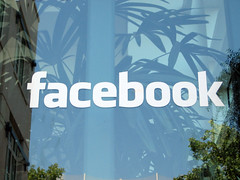September 10, 2025
Browse by Subject
- Defamation (588)
- Copyright (511)
- Legal Threat (507)
- Free Speech (411)
- Blogs (315)
- Section 230 (309)
- Anonymity (301)
- Social Media (297)
- Citizen Journalism (286)
- Newsgathering (286)
- Fair Use (280)
- Criminal (279)
- Journalism (266)
- Access to Gov't Information (242)
- Third-Party Content (239)
- Censorship (230)
- Twitter (229)
- Privacy (213)
- CMLP (211)
- Trademark (189)
- DMCA (162)
- Shield Laws (149)
- Access to Courts (148)
- Prior Restraints (120)
- FOIA (107)
- SLAPP (105)
- Cyberbullying (89)
- Elections and Politics (88)
- Legal Guide (84)
- Recording Others (83)
- User Comments or Submissions (82)
- Terms and Conditions (80)
- Publication of Private Facts (80)
- Right of Publicity (79)
- Subpoenas (78)
- Advertising (77)
- Consumer Ratings and Reviews (59)
- Intrusion (54)
- False Light (54)
- Student Speech (54)
- Gripe Sites (51)
- Congress (49)
- Hot News Misappropriation (47)
- Resources and Tools (45)
- Open Meetings (43)
- Children (42)
- Linking (41)
- Computer Fraud and Abuse Act (41)
- Obscenity (36)
- Access to Places (35)
- Business Torts (33)
- Identity (33)
- Aggregation (33)
- Trade Secrets (30)
- Trade Libel (25)
- Personal Jurisdiction (24)
- Licensing (24)
- Business Formation (23)
- Taxes (22)
- Sanctions (21)
- Employee Blogs (20)
- Domain Names (19)
- Real Estate (17)
- Retractions and Corrections (15)
- Credentials (15)
- DMLP (13)
- Cyberstalking (13)
- Reviews (11)
- Insurance (11)
- Hate Speech (11)
- Misappropriation (11)
- Establishment Clause (10)
- Government Speech (9)
- Website Design (7)
- Statute of Limitations (4)
- Science (3)
- Patent (2)
Recent Blog Posts
-
11 years 2 months ago
-
11 years 3 months ago
-
11 years 4 months ago
-
11 years 4 months ago
-
11 years 4 months ago
-
11 years 5 months ago
-
11 years 5 months ago
-
11 years 5 months ago
We are looking for contributing authors with expertise in media law, intellectual property, First Amendment, and other related fields to join us as guest bloggers. If you are interested, please contact us for more details.


 Britain's effort to reform its defamation laws and shed London's title of "libel capital of the world" has been chugging along for several years, but now it looks like it's in sight of the last stop: The government unveiled its proposed
Britain's effort to reform its defamation laws and shed London's title of "libel capital of the world" has been chugging along for several years, but now it looks like it's in sight of the last stop: The government unveiled its proposed  On April 24, 2012, a Texas jury
On April 24, 2012, a Texas jury  Federal Judge Marco A. Hernandez got a lot of attention and cyberchatter late last year when he held that blogger
Federal Judge Marco A. Hernandez got a lot of attention and cyberchatter late last year when he held that blogger  Ron Paul's presidential campaign has been having a rough go of it: He has yet to win a Republican state primary or caucus. But now his campaign's also-ran streak extends into the courtroom too, in a victory for the right to anonymous free speech.
Ron Paul's presidential campaign has been having a rough go of it: He has yet to win a Republican state primary or caucus. But now his campaign's also-ran streak extends into the courtroom too, in a victory for the right to anonymous free speech.

 Given the hoopla it caused
Given the hoopla it caused  By now, it is a given that many journalists have a regular presence on social networking services. The value of social media for gathering information, developing the journalist’s public persona, and promoting the journalist’s work is well-recognized.
By now, it is a given that many journalists have a regular presence on social networking services. The value of social media for gathering information, developing the journalist’s public persona, and promoting the journalist’s work is well-recognized. There's been a lot of buzz online (and now
There's been a lot of buzz online (and now
